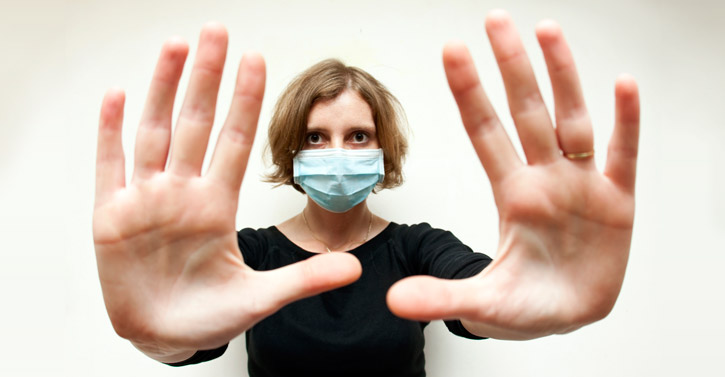The Terrors of Being Germ Conscious
December 10, 2018
We’ve all heard of germs, the tiny little microbes coming to make you ill. Crawling along your table tops and squirming through your food are millions of malicious fiends plotting your death at their minuscule hands. Or that’s what Germ-X would like you to think. It is true that there are many, many illness-causing pathogens out there, but that is no reason to fear the many, many experiences that are preempted by an excessive fear of germs. By no means do I mean that a complete abandonment of common hygiene is advisable. Rather, that when taken too far, Germaphobia hurts more than it helps.
Everything is coated in microscopic organisms. There’s practically no way to keep them out. They simply multiply too fast. Being inside in your clean palace cannot isolate you from the hated foe. As soon as you finish cleaning a surface more, mostly benign, bacteria expand to stake their claim on the newly vacated territory. A fear of germs is like a fear of air, there is nothing that you can do to keep it out and keep yourself alive.
An excellent example of a futile effort to thwart germs is the true experience I had on the 29th of October this year. Upon setting a cookie upon a tabletop for the briefest of seconds, I faced censure from my immediate classmates, who were eating their own treats upon flimsy paper towels. Their protestations about the abundance of hands that had touched the tabletop fell upon my cynical ears. The same germs that existed on the tabletop had immediately expanded to cover their thin countermeasures as soon as they were put down. Then, in the process of sitting down, they touched their chairs with their oh so newly washed hands! Oh, the horror! The chairs must have had at least as many hands on them as the table if not more! Say it ain’t so!
Inconsistencies such as these expose a germaphobic standpoint as ludicrous. But, more impactful than compulsive cleaning is a fear of our fellow humans. Common germaphobic activities include only shaking hands with handkerchiefs and avoiding other physical actions such as hugging. These actions can leave others feeling unclean or tainted. This can lead to severe consequences in your professional and personal life. You could be passed up for promotion because of what your employer sees as disrespect or a failure to make a sale because of your inane habits. Likewise, a potential partner could be easily turned off by your condescending behavior. We ostracize ourselves from our fellow humans when we decide to put undue stock in the germ threat.
In addition to the many interpersonal and foolish reasons not to be a germaphobe, there are the many health detriments to the lifestyle. The human body works best when it is constantly being challenged. When you lift weights, it snaps your existing muscle fibers and restores them with newer, stronger fibers. When you run it takes your cardiovascular system to the limit, forcing you to develop a larger capacity. Likewise, your immune system cannot get more efficient without being tested. If we were all able to live in our little bubbles of isolation our entire lives, then sure, a policy of perfect cleanliness would work very well to prevent disease. However, we live in a largely interdependent system where coming into contact with the world in necessary for success. This can lead to a plethora of complex diseases that the germaphobe would be unprepared for because of their lack of antibodies formed during childhood.
Additionally, a fear of germs can keep us sequestered indoors, unable to get the full range of benefits from being outdoors. While it is true that germs are plentiful outside, most of them are natural, benign germs that are nothing to fear. Inside, we miss out on the benefits of fresh air and it can cause shortages of vitamin D. In addition, it is difficult to maintain proper exercise in a germ-free environment. A rack of weights at the gym has more germs on it than a toilet bowl, keeping many germaphobes home rather than trying to get in shape. To actually go hiking one would need to leave their sanctuaries and risk getting cuts and scrapes, a germaphobe’s nightmare.
The final argument against Germaphobia is that life should not be ruled by fear. If we define our lives by what we do not want to happen, we can lose track of our goals. When someone refuses to go to Disneyland because of the crowd or refuses to socialize because of the exposure, they surrender the decision making to fear, and lose control of their own life.












